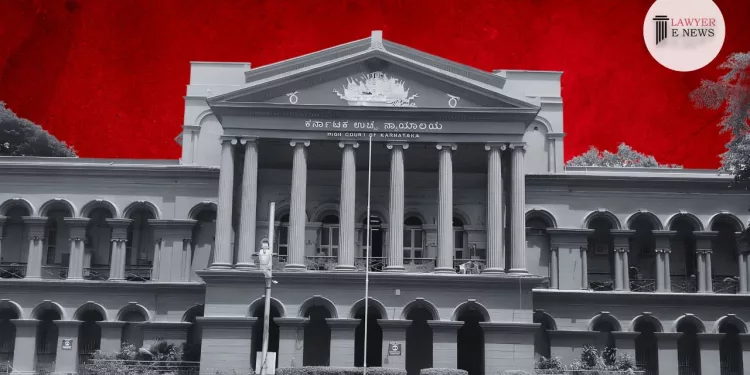Mandatory Presumption Under Section 139 NI Act: Karnataka High Court Convicts in Cheque Dishonor Case

Acquittal overturned, respondent fined Rs. 9,00,000 for dishonoring cheque issued for hand loan of Rs. 4,50,000.
The Karnataka High Court has overturned the acquittal of Smt. Chandrakala V., convicting her under Section 138 of the Negotiable Instruments Act, 1881 for dishonoring a cheque issued to Smt. Parvathamma M. The court emphasized the mandatory presumption under Section 139 of the Act and found the trial court’s assessment of evidence erroneous. The respondent has been fined Rs. 9,00,000, twice the amount of the dishonored cheque.
Smt. Chandrakala V. approached Smt. Parvathamma M. in November 2012 for a hand loan of Rs. 4,50,000 to meet urgent commitments, assuring repayment within six months. Upon approaching for repayment, Chandrakala issued a cheque for Rs. 4,50,000 dated August 29, 2013. However, the cheque was dishonored with the endorsement ‘Payment stopped by the Drawer.’ Despite a legal notice demanding payment, Chandrakala neither paid the amount nor responded, leading to the filing of a complaint under Section 138 of the NI Act.
Presumption under Section 139 NI Act: The High Court emphasized the statutory presumption in favor of the complainant under Section 139 of the NI Act once the issuance and dishonor of the cheque are proven. “It shall be presumed, unless the contrary is proved, that the holder of a cheque received the cheque for the discharge, in whole or in part, of any debt or other liability,” the court highlighted. The court reiterated that this presumption is rebuttable only by credible evidence, not mere assertions.
Burden of Proof: The court found that the respondent’s defense of the cheque being issued as security for a loan of Rs. 50,000 was unsupported by evidence. The court stated, “The standard of proof which was to be discharged by the accused is heavy on the accused. But, except her self-serving evidence, there is no evidence placed on record either oral or documentary.”
Trial Court’s Errors: The High Court criticized the trial court for misinterpreting the presumption under Section 139 of the NI Act and for treating the matter as a civil suit, incorrectly awarding the complainant Rs. 50,000 with interest. “The trial court’s conclusion has caused a miscarriage of justice,” the bench remarked, pointing out the fundamental error in the trial court’s approach.
Justice Ramachandra D. Huddar, in delivering the judgment, remarked, “The peculiar effect of the presumption of law is merely to invoke a rule of law. The burden of proof remains static and the onus of proof shifts. Mere raising a doubt is not sufficient.”
The Karnataka High Court’s judgment underscores the robust legal framework for addressing cheque dishonor cases under the Negotiable Instruments Act. By overturning the acquittal and emphasizing the presumption under Section 139, the court has reinforced the accountability of issuers of cheques and provided clarity on the evidentiary burden required to rebut such presumptions. This decision is expected to significantly impact the adjudication of future cheque dishonor cases, ensuring a stricter adherence to legal standards.
Date of Decision: 14th June 2024
Smt. Parvathamma M. vs. Smt. Chandrakala V.






